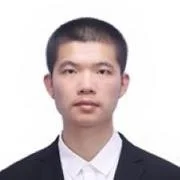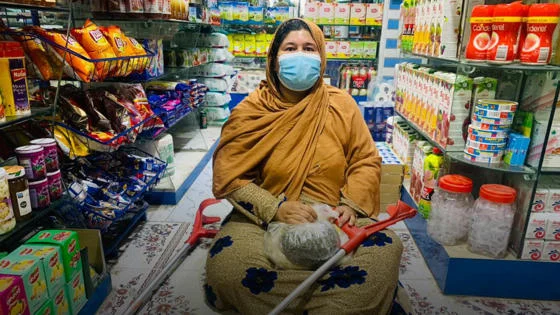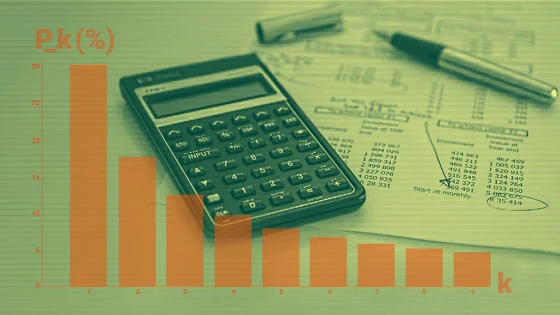The changing relationship between governments and NGOs: from activists to service providers?
Contents
Historically, non-governmental organisations (NGOs) have been agents for change, a thorn in the side of governments, holding them to account and calling out bad behaviour. As such, the number of NGOs in a country and their variety and quality have traditionally been seen as a measure of a democracy’s strength.
However, with NGOs increasingly setting up in undemocratic countries like China, does this raise questions about their shifting position in society? Are NGOs moving away from an activist role and increasingly becoming service providers? Picking up the slack and relieving pressure on governments where austerity measures, economic reforms and privatisation are leaving people vulnerable.
"Years ago, I was working at a think tank in the US and became acquainted with some of the NGOs working in China. At that point, I became really intrigued as to how these organisations were able to carve out a space and flourish, at least in terms of number, in an authoritarian state where, according to their traditional role, they would be acting completely against the interests of political elites. This was the basis of my PhD research and has been a key question in my work ever since," explains Dr Timothy Hildebrandt, Associate Professor in the Department of Social Policy at LSE.
The very reason NGOs exist in authoritarian contexts like China is because the government is allowing them to exist as they fulfil an important role.
NGOs in authoritarian regimes: the Chinese context
In a forthcoming paper, Dr Hildebrandt investigates the rise of NGOs in China and how they have been able to operate. As NGOs are seen as a potential threat, the Chinese government subjects them to strict registration rules designed to control their number and scope. Historically, in order to gain legal registration, NGOs had to secure an official sponsor.
In this study, for the first time, Dr Hildebrandt and colleagues (Dr Blake Miller, Department of Methodology at LSE, and PhD student Guodong Ju) were able to use and analyse historical NGO registration data using machine learning techniques and time series modelling.
As the first extensive quantitative analysis of Chinese NGO registration, they were able to detect previously unmeasurable patterns in government sponsorship of NGOs. Focusing on a particular 2013 policy change (which allowed some NGOs to be legally registered without the requirement for an official government sponsor) they found significant subnational variation where the local state loosened sponsorship and supervision in policy areas where capacity was low and where the risks did not outweigh benefits.
A key example outlined in the paper is the number of NGOs that emerged during the HIV/AIDS pandemic in China. In some areas where infection rates were highest, local governments allowed NGOs to operate freely (often without registration) because they required their help – and were able to attract money through international funding channels like the Global Fund.
The researchers also found similar patterns amongst migrant NGOs – in areas that face more complex issues surrounding migrant workers, the utility-risk calculation changes. Likewise, environmental NGOs that were embraced in the run-up to Beijing’s "green Olympics" in 2008 were later treated with increased hostility.
The state essentially uses registration on the one hand as a tool for control, and on the other hand as a mechanism for solving social problems. In some cases, the government has gone even further by setting up their own NGOs. Paradoxically known as government organised non-governmental organisations (GONGOS), these entities help the state govern but don’t come with the risk they may go against state interests.
The state essentially uses registration on the one hand as a tool for control, and on the other hand as a mechanism for solving social problems.
The political versus economic space
Dr Hildebrandt notes: "the very reason NGOs exist in authoritarian contexts like China is because the government is allowing them to exist as they fulfil an important role. They have no opportunity to exist politically or as advocates because the government gives them a very narrow space within which they can operate. They can either play by the government’s rules or they can withdraw. However, it is important to keep in mind that it might be more economic space they are fighting for than political space."
These observations from China are also relevant for NGOs operating in democratic countries, like the UK. Although they are legally free to speak out against the government and take on more of an advocacy role without being shut down or unregistered, other constraints can affect how NGOs operate and cause a shift in their role.
"It’s becoming increasingly expensive to operate as an NGO, irrespective of the political context," says Dr Hildebrandt. "NGOs are beginning to operate in ways that are different from their original model in order to sustain themselves over the long term. It might not be as easy to keep yourself afloat by relying on, say, membership donations. So, what you see NGOs do is answer bids for work put out by governments and getting into longer-term relationships with governments at various levels because it allows a steady stream of income. We've seen that here in the UK under the coalition government, for example, with the government's policy on a 'big society'."
A risk of this changing role could see NGOs focus their work in areas where they can more easily gain financial support from government funding and donors, rather than areas where their work is necessarily most needed. This shift could see them become more and more like businesses.
However, as Dr Hildebrandt notes: "The third sector is a temporal space – it's less a space within which organisations begin life and then die than a space through which they pass." Like any other organisation, NGOs must adapt to survive.
Dr Timothy Hildebrandt was speaking to Charlotte Kelloway, Media Relations Manager at LSE.
Download a PDF version of this article
2024 is a year of elections. What happens when the world goes to the polls?
- Read more articles from this global politics special edition of the LSE Research for the World online magazine.
- Explore our dedicated hub showcasing LSE research and social science commentary on key debates and emerging themes in global politics.
- Join us for the LSE Festival: Power and Politics, a week of events from 10 to 15 June 2024.





